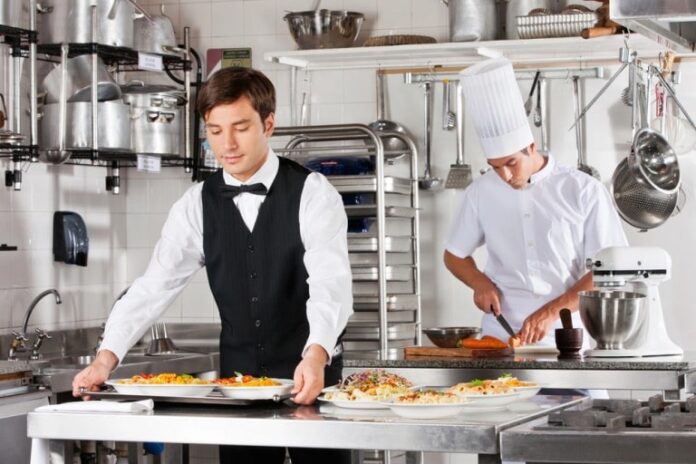Starting a commercial kitchen is more than just a logistical challenge—it’s the foundation of a thriving food business. Whether you’re launching a restaurant, catering service, or food truck, the equipment you choose will directly impact your kitchen’s efficiency, safety, and profitability.
From appliances to plumbing systems, every decision plays a vital role in ensuring smooth operations and compliance with industry standards. For businessmen entering the food industry, understanding what’s essential and why it matters can set you up for long-term success.
Equipping a commercial kitchen isn’t just about functionality—it’s about creating a space that supports productivity, maintains hygiene, and withstands the demands of a fast-paced environment.
Overlooking key components, such as proper ventilation, durable appliances, or sanitary plumbing fittings, can lead to costly repairs or even regulatory issues down the line. In this guide, we’ll explore the must-have equipment for a commercial kitchen, focusing on tools and systems that enhance efficiency and uphold the highest standards of cleanliness.
1. Commercial-Grade Appliances
Investing in high-quality commercial appliances is the cornerstone of a functional kitchen. Residential-grade equipment often lacks the capacity and durability needed for professional food preparation. Look for industrial stoves, ovens, refrigerators, and freezers that meet the demands of your menu and anticipated customer volume.
Key Tip: Choose energy-efficient models to save on operational costs in the long run. Additionally, consider the layout of your kitchen to ensure optimal workflow and easy access to essential appliances.
2. Food Preparation Stations
Preparation is one of the busiest aspects of any kitchen. Stainless steel tables are a must-have for durability, ease of cleaning, and resistance to bacterial growth. Invest in cutting boards, knives, mixers, and other prep tools that are both high-quality and easy to sanitize.
Bonus Insight: Ensure preparation stations are strategically placed near sinks or washing areas for seamless operation and cleanliness.
3. Proper Ventilation Systems
A commercial kitchen generates significant heat, smoke, and grease. A professional-grade ventilation system is critical for maintaining air quality, preventing grease build-up, and complying with health and safety regulations. Exhaust hoods, filters, and fans are non-negotiable investments to ensure a safe working environment.
4. High-Quality Plumbing and Sanitation Systems
Cleanliness is non-negotiable in any commercial kitchen. Your plumbing system must include essential components such as sinks for handwashing, dishwashing, and food preparation, as well as adequate drainage and water filtration systems to prevent contamination. Other crucial considerations for maintaining sanitation include backflow prevention devices, high-quality water lines, and sanitary hose fittings.
Each of these elements plays a role in ensuring your kitchen adheres to health regulations, minimizes contamination risks, and supports smooth daily operations. Proper attention to these details can help avoid costly maintenance issues and uphold the hygiene standards critical to any successful food business.
Pro Tip: Regularly inspect and maintain all plumbing components, including water lines, backflow preventers, and hose fittings, to ensure optimal performance and compliance with health standards. Scheduled maintenance helps identify potential issues early and keeps your kitchen running smoothly.
5. Refrigeration and Storage Solutions
Proper storage is critical to preventing food waste and maintaining freshness. Walk-in coolers, freezers, and dry storage shelving should be tailored to your menu and inventory requirements. Use clearly labeled, airtight containers to store ingredients and prevent cross-contamination.
Pro Tip: Opt for shelving units that are easy to clean and resistant to rust, especially in humid environments like walk-in coolers.
6. Fire Safety Equipment
Fire hazards are an inherent risk in any kitchen. Equip your space with fire suppression systems, extinguishers, and smoke detectors. Train your staff on fire safety protocols and ensure all equipment is regularly inspected and maintained.
7. Waste Management Systems
Efficient waste management contributes to both hygiene and sustainability. Invest in clearly labeled bins for recyclables, compostable materials, and general waste. Consider adding grease traps to handle kitchen waste effectively and avoid plumbing issues.
8. Cleaning Supplies and Tools
A clean kitchen is the foundation of a successful operation. Stock up on industrial-grade cleaning supplies, including mops, brushes, sanitizers, and detergents. Invest in a cleaning schedule and train staff on maintaining hygiene throughout the day.
Expert Tip: Use color-coded cleaning tools to prevent cross-contamination between different areas of the kitchen.
9. Technology and Monitoring Systems
Modern kitchens benefit greatly from technology. Install systems to monitor inventory, manage orders, and track food safety compliance. Smart kitchen tools, such as temperature monitoring devices for refrigeration units, can help prevent spoilage and ensure food safety.
Final Thoughts
Setting up a commercial kitchen is a meticulous process that requires thoughtful planning and investment in high-quality equipment. From industrial-grade appliances to efficient plumbing systems with sanitary hose fittings, every component contributes to a kitchen’s overall functionality, hygiene, and compliance with regulations.
By prioritizing durability, efficiency, and cleanliness, you not only create a space that meets health and safety standards but also lay the groundwork for streamlined operations and long-term success. These choices, though sometimes costly upfront, ensure smoother workflows, minimize maintenance issues, and ultimately protect your reputation in the competitive food industry.
As a businessman, your focus should be on building a kitchen that supports your vision while maintaining the flexibility to grow with your needs. Whether you’re running a restaurant, catering service, or food truck, the equipment and systems you choose will directly impact your profitability and customer satisfaction.
Taking the time to plan carefully, select the right tools, and invest in professional-grade solutions ensures your kitchen is prepared to handle the demands of a thriving food business.
